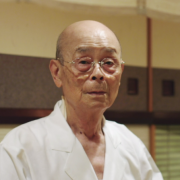Elizabeth Holmes and the Case for ‘Breakthrough Simplicity’
Elizabeth Holmes, the 31-year-old CEO of Theranos and the world’s youngest self-made billionaire, may (or may not) be the next Steve Jobs-esque wunderkind, attempting to apply his brand of elegant, user-friendly design to medical diagnostics. What she says her company can do may (or may not) thoroughly disrupt the medical diagnostics industry. But she clearly has the unfettered courage of her conviction that her company’s technology, by making blood testing simpler, will do nothing short of making the world a better place.
Ms. Holmes has devoted her entire life – quite literally, it seems – to the passionate belief that blood testing can be more easily and cheaply done in ways that are better for patients, physicians and the healthcare system as a whole. But recently the Wall Street Journal published back-to-back investigative pieces raising doubts about whether Theranos is really doing what it says it does – that is, quickly and inexpensively processing a full range of laboratory tests from just a few drops of blood obtained from a simple finger prick. So far, despite her ardent defense of her company and its achievements, many feel she has not effectively addressed the tough questions raised.
It may very well be that Theranos has encountered challenges with its potentially game-changing technology and hasn’t been open about it. But there’s no doubt Ms. Holmes is aiming for something at the very heart of today’s healthcare conversation – how do we simplify the vast complexity that characterizes healthcare today? How do we reduce the barriers that make it difficult for patients to get what they need?
It’s been called “breakthrough simplicity” – an alternative way of thinking about innovation that is rooted in finding new ways to make everything simpler. The more complex something is, the greater is the opportunity to simplify it. Healthcare is a good example. Every bit of data out there is telling us that healthcare doesn’t work the way it should – not for consumers and patients and not for healthcare providers, either. The system gets more complicated by the day while people want and need it to be simpler to navigate so they can get the information they need to make the best possible decisions about their care.
But “simple” doesn’t necessarily translate to “easy” when it comes to the innovation needed for this kind of fundamental change. Complexity builds on itself until it becomes entrenched and the accepted way of doing things. Change is hard. Systems resist. Just ask Elizabeth Holmes.
Whether or not Ms. Holmes ultimately succeeds, she’s planted a stake in the ground for innovation of the “breakthrough simplicity” kind – the kind that cuts through the clutter and focuses on the true essence of what consumers need and want.
Photo Courtesy Theranos







